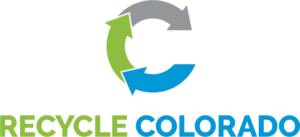Colorado Organics Mangement Plan
The Colorado Department of Public Health and Environment (CDPHE) commissioned a Statewide Organics Management Plan as a framework to identify key elements, options, and recommendations to increase organic waste diversion opportunities throughout the State. The Plan was designed as a framework for policy makers, and as a tool for counties and municipalities to develop organics diversion programs.
The results and recommendations within the Plan are intended to guide policy makers such as municipal and local leaders and facility operators to develop both short and long-term goals that are best suited at a local and regional level for capturing and diverting organics waste materials while ensuring adequate capacity for end-market use.
Organics Mangement Plan Study & Toolkit
In 2023, the Colorado State Legislature directed the Colorado Department of Public Health and Environment (CDPHE) to study the impacts, benefits, and feasibility of requiring the diversion of organic materials from landfills via the Organics Diversion Study Bill 23-191. As part of the study, CDPHE also commissioned development of a toolkit which draws on the study research and findings.
The study builds on the work completed in the Statewide Organics Management Plan to provide policy recommendations that are based on best practice. This report provides guidance and recommendations for solutions to the current barriers to successful organic waste management and diversion, including mechanisms to support collection systems, develop end-markets, and deal with the complexities and confusion that surround the increasing volume of compostable packaging.
The toolkit is intended to serve as a resource to support organics processing infrastructure development across Colorado. The resource was developed with local governments and private entities as the main audience and aims to help these groups better understand and develop organics processing infrastructure in Colorado.
The focus of the toolkit is organic municipal solid waste which includes food and yard waste from residential, commercial, and institutional facilities. When planning and developing organics infrastructure there are many variables to consider (e.g., available feedstocks, transportation corridors, collection options, contamination risks, zoning, permitting, siting, operations, end markets, funding, etc.). This toolkit outlines these considerations, highlights best practices, and provides outside resources where readers may require additional guidance.
Are you wondering what the hype is around composting?
Are you ready to start composting in your community, but are unsure how?
Check out this recorded webinar to hear more about the toolkit and real-world examples of Colorado communities who implemented composting programs!
If you are looking for another way to get involved with composting efforts in your community, become a Citizen Scientist!
More resources:
- Tools and resources
- Recycle Colorado: info@recyclecolorado.org
- Colorado Department of Public Health & Environment (CDPHE)
